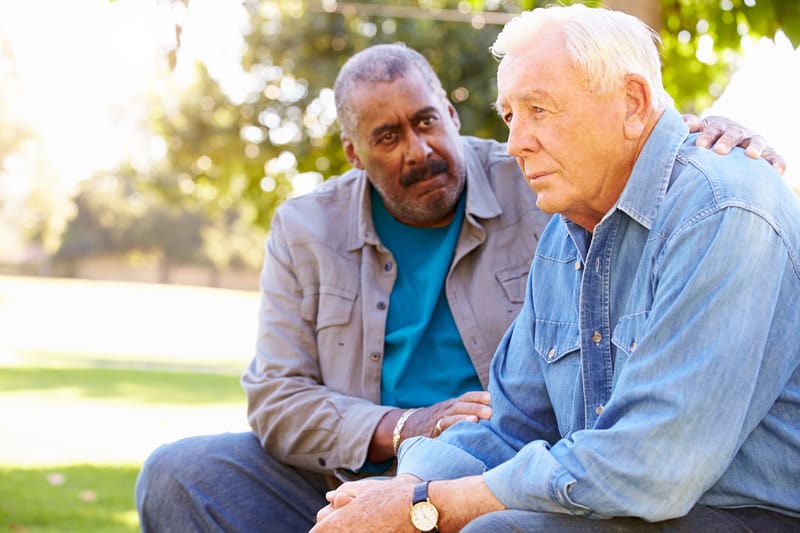How to Help a Relative or Friend with Anxiety or Depression
6 tips to guide you as you guide a troubled friend

Author Stanley Popovich has dealt with fear and anxiety for more than 20 years. He uses his personal experience and information gained from counselors to help others deal with these issues. In this article, Popovich offers guidance on how to help a friend with anxiety or depression.
Do you know a friend or loved one who suffers from fear, anxiety, and depression and do not know what to do?
It can be frustrating to watch someone suffer and not be able to help them.
Here are six ways to help the person cope in these kinds of situations and the best way to deal with anxiety.
1. Learn as much as you can in managing anxiety and depression.
There are many books and information that will educate you on how to deal with fear and anxiety. Share this information with the person who is struggling with their mental health issues.
2. Be understanding and patient with the person struggling with their fears.
Dealing with depression and anxiety can be difficult for the person so do not add more problems than what is already there. Do not get into arguments with the person who is having a difficult time with their anxieties.
3. Talk to the person instead of talking at them.
It is important not to lecture the person who is struggling with anxiety and depression. Talk to the person about their issues without being rude. Most people will listen if you approach them in a proper manner.
For advice on intriguing everyday problems, check out our archives of Ask Amy columns.
4. Get help.
Seek help from a professional who can help your friend or relative with their mental health struggles. A counselor can give you advice and ideas on how to overcome anxiety, fear, and depression. Getting help from a professional is the number one priority in helping your loved one deal with fear and anxiety. Joining a local mental health support group can also be helpful. Talk to your doctor to get more information about potential groups in your area.
5. Talk to the person on what will happen if they do not get help.
Another way to convince the person who is struggling with fear and depression is to tell them what may happen if they don’t get some assistance. Anxiety and depression can make things worse and usually it won’t go away by itself without some kind of treatment.
6. Find out the reasons why the person won’t get help.
Address the issues on why the person will not get the necessary help. Many people who are struggling are fearful and frustrated. Try to find out the reasons why he or she won’t get the help they need and then try to find ways that will overcome their resistance of seeking assistance.
Stan Popovich is the author of the popular managing fear book, A Layman’s Guide To Managing Fear. For more information about Stan’s book and to get some free mental health advice, please visit his website, Managing Fear.
If you or someone you know is considering suicide, call 1-800-273-TALK (8255). The Lifeline provides 24/7, free and confidential support for people in distress.


